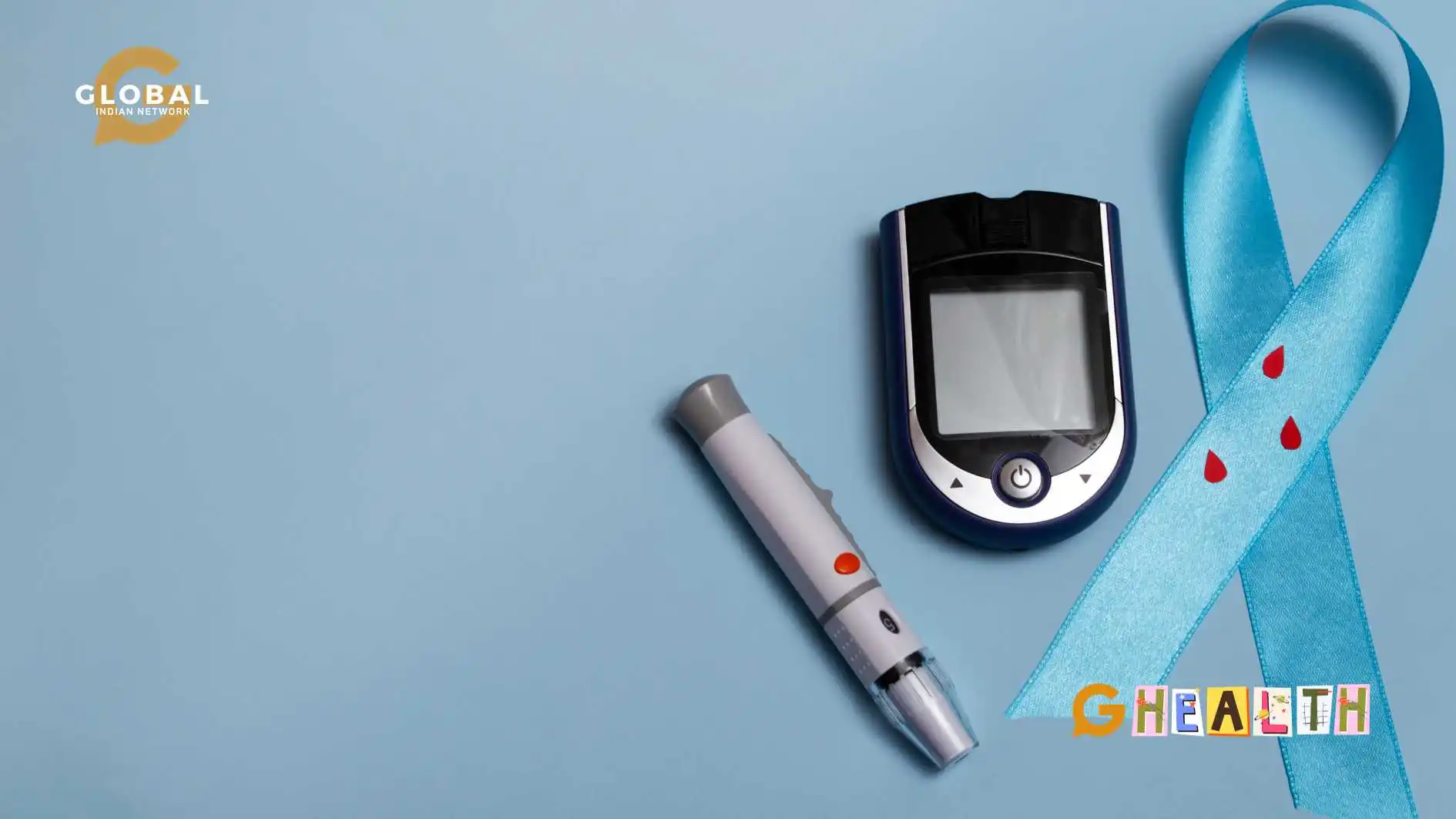Do you have high blood pressure, diabetes, and high cholesterol?
Yes, yes, and yes.
The above has become a common conversation compared to the last decade or so.
Almost everyone knows the metrics, the safe levels, and the danger zones.
A ready-made, instant cure is what everyone seeks.
Here, in this piece, we will deep-dive into diabetes. Is it possible to cure diabetes in 7 days? Let us find out.
Table of Contents
Type 1, Type 2, and Gestational Diabetes
Type 1 diabetes is an autoimmune condition caused by genetics and other unknown factors. The immune system attacks and destroys the insulin-producing beta cells in the pancreas, leaving the body unable to produce insulin.
Type 2 diabetes develops gradually and is often associated with weight gain (obesity) and a sedentary lifestyle. It is characterized by insulin resistance, where the body produces insulin but cannot use it effectively. The pancreas compensates by producing more insulin, but glucose accumulates in the bloodstream, disrupting blood sugar regulation.
Gestational diabetes is a condition where a rise in blood sugar levels develops during pregnancy in women without pre-existing diabetes. It can lead to complications for both the mother and baby, including heavy birth weight, premature delivery, and respiratory distress syndrome.
Causes
Type 1 diabetes is a condition when the body’s immune system attacks and destroys insulin-producing cells in the pancreas, resulting in an inability to produce insulin.
Type 2 diabetes stems from a mix of genetic and environmental factors, often tied to lifestyle choices like inactivity and obesity. It leads to impaired insulin function, causing elevated blood sugar levels. Over time, insulin production may decline, calling for insulin therapy.
Symptoms
Diabetic conditions of type 1 diabetes include increased thirst and frequent urination; extreme hunger, unintended weight loss, fatigue, and weakness; blurred vision;
irritability and mood change; and bedwetting in children who previously didn’t wet the bed during the night.
Symptoms of diabetes (type 2) include increased thirst and frequent urination, extreme hunger, unintended weight loss, fatigue and weakness, blurred vision, slow-healing sores, or frequent infections and areas of darkened skin, usually in the armpits and neck.
Insulin secretion is a process that regulates blood sugar levels through the production of a hormone called insulin. This process is influenced by various signals, including glucose and neurohumoral agonists (extracellular signals that regulate insulin secretion). Type 1 diabetes is caused by the destruction of cells responsible for insulin secretion, while type 2 diabetes is characterized by insulin resistance or insufficient insulin secretion.
Inflammation is believed to play a role in the development and progression of diabetes and its complications. Activity in diabetes (aerobic exercises, strength training, and flexibility exercises) has been shown to release anti-inflammatory chemicals into the body and improve insulin sensitivity.
Diagnosis
Type 1 human diabetes can occur at any age, although it is commonly diagnosed in children and young adults. Diagnosis typically involves a combination of blood tests, including fasting blood glucose, A1C, and random blood glucose tests.
Chronic type 2 diabetes can occur at any age, although it is commonly diagnosed in adults. Diagnosis typically involves blood tests, including fasting blood glucose, A1C, and random blood glucose tests.
Potential Complications of Diabetes
The imbalance in blood glucose levels can lead to complications like heart disease, kidney problems, and nerve damage. To prevent these, maintain stable blood sugar levels through medication, insulin, and lifestyle changes. There are solutions to lower blood glucose levels to reduce the risk of type 1 and type 2 diabetes.
A balanced diet, regular exercise, diabetes medication, tracking blood pressure, cholesterol control, regular check-ups, quitting smoking, stress-reduction techniques, and foot care are essential for people with diabetes.
Diet Guide
Management of type 2 requires moderate weight within healthy ranges, as diabetes complications increase with weight. Insulin sensitivity has to be achieved. Diabetes meal plans should be a plant-based diet with nutrient-rich foods.
Essential vegetables for diabetes include non-starchy vegetables like carrots, broccoli, and spinach, which are low in calories and high in essential nutrients. Fruits like strawberries, blueberries, and raspberries are also beneficial for diabetics. Whole grains, lean proteins, and legumes can help control blood glucose levels and maintain a stable body weight.
Virgin olive oil is a healthy addition to a diabetes diet due to its low glycemic and high antioxidant content. Omega-3 fatty acids, such as those from fatty fish, flaxseeds, chia seeds, and walnuts, can reduce insulin resistance, improve blood glucose levels, and support heart health. Lean meats like beef, pork, and chicken are suitable options for diabetes management. Kidney beans and black beans are nutritious but require careful carbohydrate management. Other beneficial foods for diabetes management include nuts, oatmeal, dairy, and cinnamon, which can help prevent heart disease.
The benefits of water cannot be overlooked regarding daily care.
Medication and Insulin Therapy
Regular visits to health care providers are an essential step towards tracking blood glucose levels. The release of insulin is crucial for managing type 1 diabetes by replacing the missing hormone, regulating blood sugar levels, preventing diabetic ketoacidosis, and reducing the risk of complications like heart disease and kidney problems. Adherence to prescribed treatments is essential for avoiding high blood sugar levels and improving quality of life. Consultation with healthcare providers is essential for adjusting to restrict blood sugar fluctuations.
The evaluation of insulin (a hormone produced by the pancreas) plays a vital role in regulating blood sugar levels. In some cases, insulin supplements may be necessary to maintain normal blood glucose levels. As always, check with a health professional before taking any supplements.
Regular Visits to Healthcare providers
Healthcare providers make sure you are taking the right medications and help you understand their effects. They can also address any concerns about medication side effects.
Diabetes can impact mental health. Healthcare providers can recognize signs of diabetes-related stress and provide support or refer you to a mental health professional.
Regular appointments provide motivation and accountability. Knowing your upcoming visits can encourage you to stick to your blood sugar management routine.
In summary, regular visits to healthcare providers are an integral part of diabetes management. They help maintain your health, prevent complications, and ensure your treatment plan is tailored to your specific needs.
Cure
The cure for type 1 (insulin-dependent) and type 2 diabetes must take immediate steps to prevent complications like heart disease, kidney problems, nerve damage, and oral and vision issues. Regular health check-ups and blood tests can detect diabetes early, allowing for timely intervention and effective management to contain blood sugar spikes.
Your healthcare provider will advise you on how often to check your blood sugar level to ensure you remain within your target range. (Source: mayoclinic.org )
Dietary choices should be discussed with a dietician to determine an ideal treatment plan. The portion sizes have to be strictly adhered to to regulate the metabolism of glucose.
Good food should include leafy greens, Greek yoghurt, fruits (selected and in moderation), brown rice, beans, legumes, nuts, and seeds. The foods to be avoided are white bread, dried fruits, fruit juices, and fatty meat. Reduced-fat dairy items are considered healthy. Carbohydrate intake is to be reduced. Water is proven to control blood glucose levels and is better than carbonated drinks.
Weight loss improves insulin sensitivity and the absorption of glucose from the bloodstream. This can be triggered by insulin release through regular exercise.
People with type 1 and type 2 are under clinical trial status. Hopefully, a drug will come along in the end. (Source:clinicaltrials.gov)
Conclusion: Can Diabetes Be Cured in 7 Days?
By understanding the risk of diabetes, making lifestyle changes, following medication plans, and regularly tracking their health, individuals can improve their blood sugar to be in a normal range and lead healthier lives. Prioritizing well-being and engaging with healthcare providers is essential for successful diabetes management and a long, healthy life.
Based on the above factual information, we have to sadly conclude that a cure for diabetes in 7 days is a myth. A realistic target is to cut back on blood glucose.
FAQs
How can I reduce my blood sugar levels as soon as possible?
Common treatments for diabetes include exercise, a healthy diet, hydration, sleep, stress reduction, and medication adherence. Insulin resistance is reduced responsiveness to insulin, resulting in high blood glucose levels. To prevent the medical condition, maintain a healthy weight with exercise, a balanced diet, and regular check-ups.
What are the risk factors for gestational diabetes?
Risk factors for gestational diabetes include being overweight or obese, physical inactivity, prediabetes, a history of gestational diabetes in a previous pregnancy, polycystic ovary syndrome, a family history of diabetes, and giving birth to a baby weighing over nine pounds in the past.
Do herbal supplements help reduce glucose levels?
Some herbal supplements (mostly medicinal plants) considered helpful for people with diabetes include cinnamon, ginseng, magnesium (almonds, cashews, flaxseed, etc.), chromium (whole grains, beef, broccoli, etc.), and alpha-lipoic acid (carrots, beans, peas, etc.). (Source: healthline.com )
However, it is advisable to check with government sources for information.
It’s also important to talk to your doctor before taking any supplements, as they can interact with medications or cause unwanted side effects. Each supplement is grown in different conditions, and hence, the medicinal properties will vary. Additionally, it’s vital to note that dietary supplements are not a substitute for a healthy diet and regular exercise.









